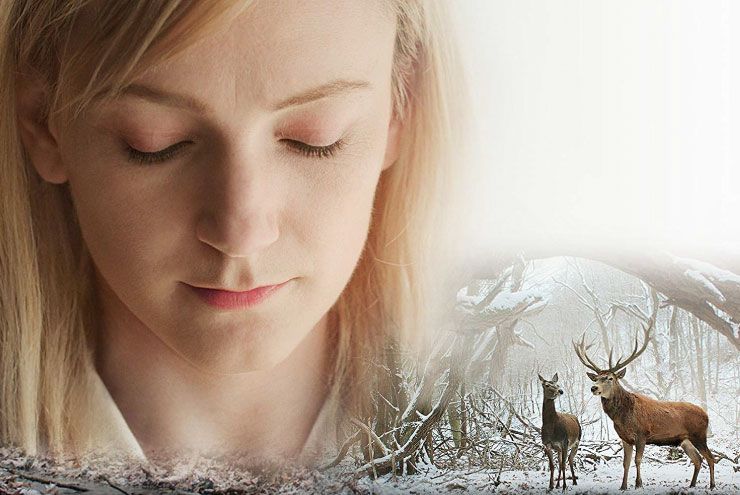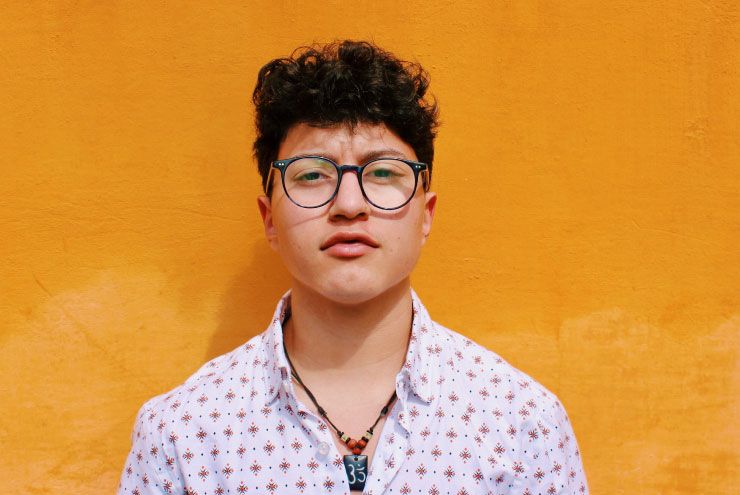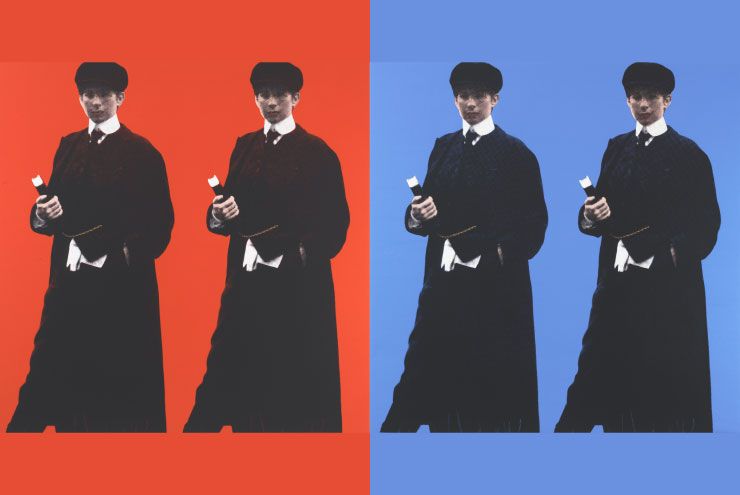By Yvan Oliva
Author disclaimer: Parts of the film take place within a slaughterhouse and there are very sobering depictions of the operation early on in the film. “Some animals were harmed during filming, but none of them for the sake of this film,” is tacked onto the end credits.
Imagine that you find yourself attracted to someone. Imagine the urgency with which they occupy your thoughts, the impulse of being drawn to them. And yet all the while, you remain incapable of vocalizing the force that belies your attraction to them. How did we become entangled like this? To desire another is to be left speechless with nothing to rely on but the language of want, a language that becomes imperfectly processed through the body. Moving between snow-covered dreamscapes and the brutal backdrop of the abattoir, director Ildikó Enyedi’s On Body and Soul plays like an ethereal romance that investigates the hesitations of touch and liminality of desire.
Maria and Endre work at a slaughterhouse on the outskirts of Budapest, Hungary, she as the new quality inspector and he as the financial director. While theirs is a heterosexual attraction, there is a queer experimentalism to their desire for one another—they both feel like outliers in the heteronormative rituals of courtship, and both have a disability that determines, to some extent, how they maneuver through the world. Endre has a motor disability that has rendered one of his hands immobile, and Maria exhibits symptoms of Asperger’s syndrome. The soft push and pull that occurs in semi-conjunction with their disabilities leaves Maria averse to touch and Endre averse to complex intimacy. Each is always trying to determine whether the other is truly drawn to them and where the limits of that attraction lie.
What starts out as a shared dream, wherein Endre is a stag and Maria a doe, winds its way into their waking life after a specialist is called in to determine who stole mating powder from the commissary. Though they initially shrug it off as coincidence, the dream becomes recurring, giving them the permission they seek to become closer to one another, as if some kind of romantic gesture of fate were involved. The dreamscape provides Endre and Maria with the template needed to explore their attraction to one another without having to involve their waking bodies, the very things which seem to resist the idea of desire. As they become closer, Endre mistakes an innocent night of playing cards with a level of intimacy that Maria is not ready for; a simple touch on the hand is enough to cause her to withdraw from him, much like in the first iteration of their snowy dream. For Maria, touch is a limit point, a boundary that she has not yet grown comfortable with letting herself or others cross. But like many of us queer folks who resist the physical manifestations of their desires, Maria similarly wants to permit herself to cross that threshold.
When I was younger and identified as a boy, I had a crush on a boy who happened to be my best friend. I didn’t know it was a crush until we went camping for a weekend with his family. It was dark and outside of our tent there were unexplained noises that were frightening me. He was teasing me for being afraid, playfully so, and it made me laugh nervously. Our cots had a small space between them, so I crawled out of mine and began to bundle myself up beside his. He found this so funny and so there we were, just laughing at my silly fear, when out of the blue, in the back of mind, I hear clear as day: “Kiss him.” I remember being frozen in time. Something kept telling me to kiss him, and I didn’t understand what was happening at that moment, just that I was so nervous and here was this boy who I suddenly felt like crossing a threshold with. But I didn’t. I remember wanting to stifle his guffaws with my lips but feeling like my body had betrayed me, and that want has stayed with me to this day.
There is a scene where Maria stops at Endre’s table during their lunch and says to him, “I think you are beautiful.” Not only is she admitting that she actively thinks of him, she has found him beautiful in all his forms, both bodily and oneiric. And he, in turn, allows himself to be the object of someone’s attraction. When a want is planted in the mind, it lingers until it doesn’t or until we give it a chance to see the light of day. That risk can unite the body to the soul and present us with a new way of maneuvering through the world, one that is liberating, fresh, and a bit queer.







